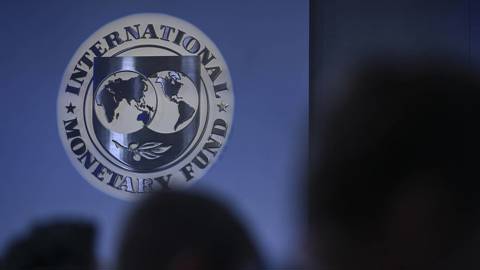https://prosyn.org/ndO7HEL
New Comment
Email this piece to a friend
Contact us
Please select an option
Please wait, fetching the form
Please wait, fetching the form
Please wait, fetching the form
Please wait, fetching the form
Please wait, fetching the form
Please wait, fetching the form
Please wait, fetching the form
We hope you're enjoying our PS content
To have unlimited access to our content including in-depth commentaries, book reviews, exclusive interviews, PS OnPoint and PS The Big Picture, please subscribe










The recent joint-statement by the finance ministers of Finland, the Netherlands and Germany that a significant amount of bank debt will not be paid for by the ESM, has sent the markets into a tizzy. Irish and Spanish bond yields were sent sharply up and commentators went apoplectic that all the good work over the past few weeks has been undone by politics. Their statement that “legacy assets should be under the responsibility of national authorities”, was a direct challenge to the mandate agreed at the June summit where all bank recapitalization, both past and present, was meant to be paid for out of ESM funds. Why did the creditor states make such a statement? Why did they throw the Eurozone back into crisis?
Subscribe to PS Digital
Access every new PS commentary, our entire On Point suite of subscriber-exclusive content – including Longer Reads, Insider Interviews, Big Picture/Big Question, and Say More – and the full PS archive.
Subscribe Now
Looking at these questions from a political perspective it is clear that making such a statement is one of the few powers that they have left to ensure that the debtor states reform. Spain was the principal target for the creditor states with Ireland caught in the middle. Plentiful media coverage has focused on mass protests against the Spanish government’s austerity policies, in addition to a growing movement demanding independence for Catalonia. Such tremendous political pressure on Spanish President Mariano Rajoy created the risk that he would seek to row backwards on the reforms that his government has agreed. Any change to Spain’s commitments would be seen as emboldening the position of Greece to further prevaricate over its bailout deal. With Greece and Spain failing to make progress on reforms, then creditor state governments would have been left wondering when, if ever, they would change their fiscally irresponsible ways.
The implementation of the ESM and banking supervision across the Eurozone does not as yet provide an EU institution with the ability to apply sanctions against fiscal policy violations. One element from the creditor countries statement that was almost wholly ignored was the emphasis on addressing this gaping hole in future negotiations - "we discussed the governance, independence, decision making and accountability of the new Single Supervisory Mechanism". To add muscle to this point the creditors showed the debtors that they still have the power to scupper any banking deal and hold them to their fiscal commitments should there be any slippage. With the Spanish government’s new austerity budget, the Irish government meeting its bailout goals and even France making drastic cuts, the muscle flexing of the debtors has been duly noted by the debtors .
The resolution of a complicated series of political negotiations is at the centre of resolving the ‘Eurocrisis’. AAA rated states are seeking to protect their hard earned low borrowing rates by ensuring that other states follow their lead of stable government finances. At the same time debtor states argue that too much austerity will risk the collapse of their governments with resulting negative consequences for the Eurozone. The whole process is a high-wire act, balancing the competing interests of member states before a final permanent agreement is made. Dramatic wobbles on either side are to be expected.